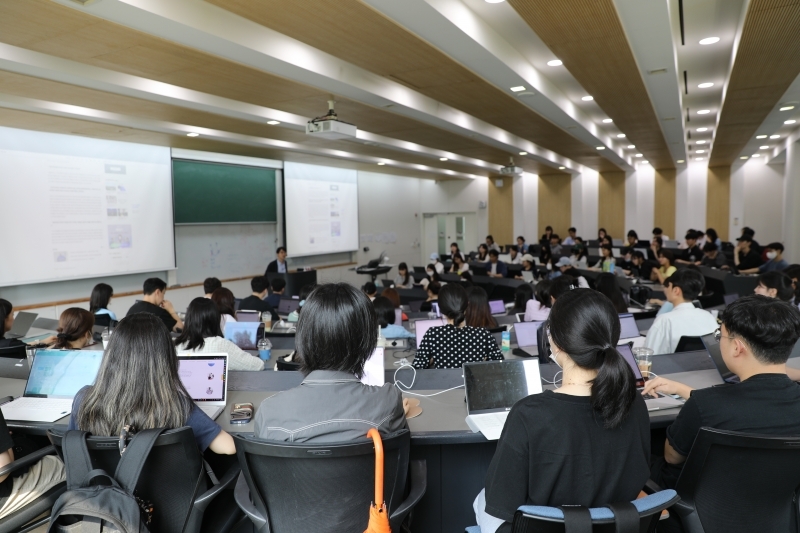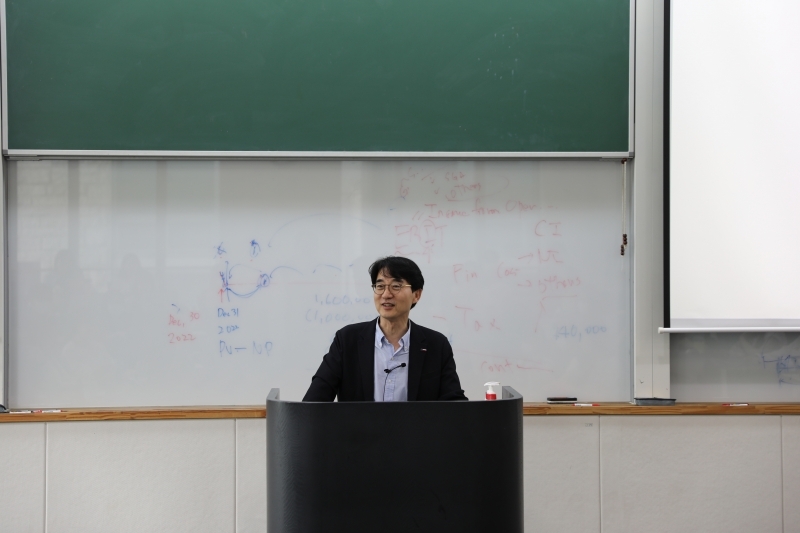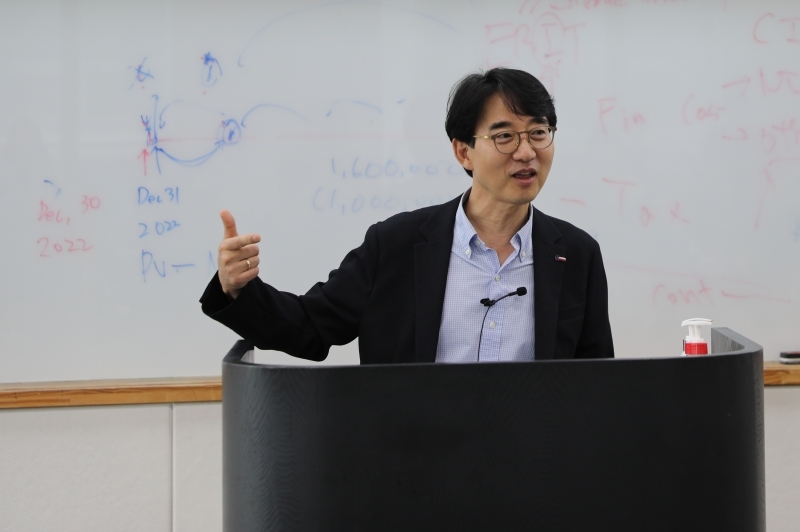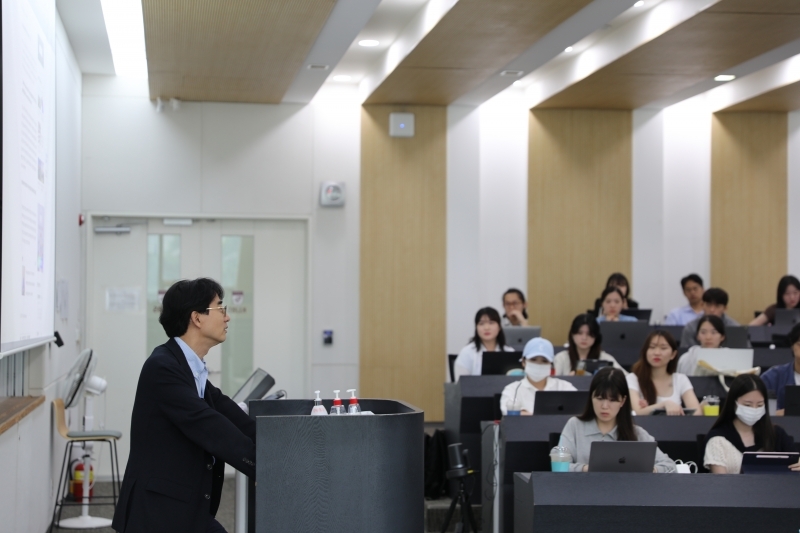News
Special Lecture
"It's okay to experience failures. What truly matters is setting your next goal." ... Global CEO Talk by Dean Sang Yong Kim
On June 9th, Korea University Business School (Dean= Sang Yong Kim) hosted the Global CEO Talk in Room #303, Hyundai Motor Hall. Since the lecture was the last session of the Global CEO Talk series for the spring semester 2023, Mr. Sang Yong Kim, the Dean of KUBS, delivered the speech himself. The lecture consisted of students asking questions and the Dean providing responses.

Q: You have been teaching at KUBS for a long time. What do successful students have in common?
A: In the past, students who excelled in their studies caught my attention. They were students with a good attitude, focus, and the ability to provide intelligent answers. However, these days, it seems like everyone is smart and proficient in English, and excelling in their studies. Consequently, nowadays, it’s the students with good attitudes and positive attitudes who catch my attention. I believe that differences in attitudes account for variations in grades, even when there isn’t much disparity in academic or professional abilities among individuals. Whether it's a class or a professor you don't particularly like, or if the class schedule doesn't align with your biological rhythm, I encourage you to take responsibility for your choices. Embrace an attitude that sees nothing as impossible to achieve. Nevertheless, it's inevitable to encounter situations where certain things cannot be accomplished. In such instances, don't get discouraged and be prepared to pursue an laternative plan (Plan B).
Additionally, we live in an era where self-marketing is crucial. It’s necessary to present yourself as knowledgeable, even if it means pretending at times. You should confidently communicate your skills and areas of expertise. It’s important to highlight your strengths and promote them effectively. Moreover, it’s essential to engage with individuals who hold a positive perception of you.
Q: What are the global entertainment aspirations of the Dean?
A: One of the commitments that I made when assuming the role of Dean was to “accomplish what other universities cannot.” KUBS and the School of Media & Communication at KU are home to numerous exceptional professors, some of whom hold influential positions within major Korean entertainment companies. Both schools have also produced several scholarly papers focusing on K-entertainment. Given these strenths, I firmly believe that a llaborative research institute established jointly by the two schools would serve a significant research hub. I am currently in the process of planning its launch, which is scheduled for the summer.

Q: You graduated from the Department of Western History as an undergraduate. Why did you study Business Administration after that?
A: I went to study abroad before travel restrictions were lifted. In the past, we didn’t have the freedom to choose our majors, nor were double majors or dual degrees options available. Changing one’s major after entering a university was challenging, and pursuing a different master’s major was equally difficult. During that time, graduates from humanities disciplines faced difficulties finding jobs at major corporations, as they preferred candidates from business or English literature backgrounds.
However, a friend informed me that I could pursue an MBA abroad without being constrained by my undergraduate major. Having little prior experience in business, I managed to get only three hours of sleep every night to cope with the rigorous demands of my studies in the United States. As time passed, the challenges became overwhelming, leading me to intern at a brokerage firm. Despite this exposure to the corporate environment, I found it difficult to comprehend and embrace the corporate life. Consequently, I heeded the advice of company employees and decided to continue my studies further.

Q: Did studying history help when studying business?
A: Studying history didn't help much when studying business, but some people say that it provided a different perspective or a different view on research or paper tendencies. I think that studying humanities during my undergraduate years helped in that point of view. I have a different perspective or view when it comes to perceiving and understanding phenomena.
Q: Do you have any advice for students?
A: It'crucial to pursue both your passions and your strengths. If you find yourself having to choose between what you want to do and what you're good at, prioritize your strengths. Focusing on what you excel at allows you to experience a sense of accomplishment and fulfillment. If idenfitying your strengths feelss challenging, try eliminating activities you dislike or struggle with through a pocess of elimination. By doing so, you can narrow down and idenfity what you truly excel at. Once you discover your strengths, commit yourself wholeheartedly, and success will likely follow. For instance, I personally pursued marketing uantitative analysis because I wanted to excel in a field where I could incorporate the Internet and leverage quantitative analysis for marketing purposes.
What I want to convey that life doesn't always follow our plans, but it’s essential to give your best effort in every moment. I have always believed that “there is nothing that cannot be done” and consequently put in my best efforts. However, there were instances when things didn't work out as expected. Nevertherless, I remained determined and prepared with Plan A, Plan B, and Plan C. During this semester's special lectures, you must have heard from many speakers who faced numerous failures but managed to rise again. Remember, it's okay to experience failures, and it’s not essential to have high grades all the time. What truly matters is setting your next goal.



